Mark Warburton: "I'd rather coach kids than close a £1 billion deal in the city"
After promotion to the Championship last season, Brentford are now flying in the play-offs and eyeing a sensational rise to the top flight. In April 2014, Nick Moore met the banker-turned-Bee who got them there...
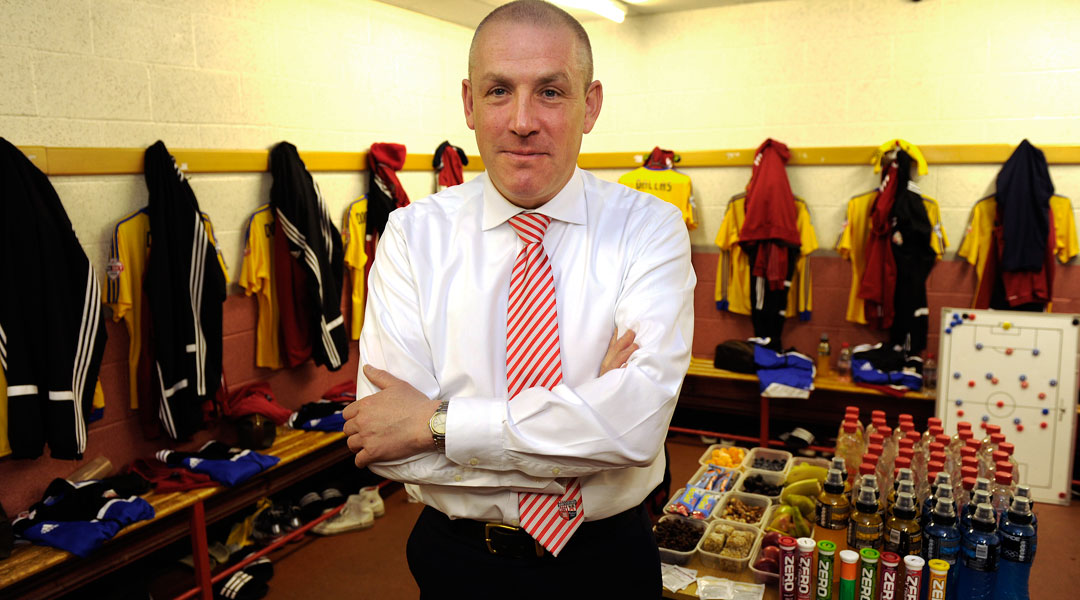
It was when a billion-dollar negotiation landed on his desk in the City of London and he just couldn’t concentrate on it that Mark Warburton realised he had to give up his day job.
“There was this huge deal in front of me, and all I could think about were the passing drills I was going to do that evening with my under-10s team,” he chuckles about his time as currency trader in Bishopsgate.
“I worked for Bank of America, IBJ, AIG, the Royal Bank of Scotland, and you could be turning over two billion dollars a day. I was taking the 5.10am train into Liverpool Street, coming home at 7pm, getting phone calls through the night – the full City lifestyle. You're very well rewarded. But my heart was in football.”
And unlike many a desk jockey who has longingly pondered ditching the briefcase in order to “follow their dreams” – the sort of calligraphy-drawn mantra that idiots like to post on Facebook, defying real-world logic that dictates such behaviour is bananas – Warbuton actually did it.
He walked away from the trading floor with a 10-year plan in place to gain employment as a football manager, one of the least secure jobs imaginable.
My wife and kids thought I was absolutely insane. In their position I’d have questioned my sanity too"
“I knew that if I ended up at park level, I’d have really cocked it up,” he says. “My wife and kids thought I was absolutely insane, and in their position I’d have questioned my sanity too.” The Warburton family, however, were mistaken. Miraculously, Dad’s plan came off, and in December 2013 he was appointed gaffer of Brentford after Uwe Rosler’s move to Wigan.
“I was delighted,” he says. “I know I can do this. I’m conscious that my background isn’t steeped in the game like other people.
Get FourFourTwo Newsletter
The best features, fun and footballing quizzes, straight to your inbox every week.
"But while I don’t want to appear disrespectful, I think that the City environment and the skills that you learn are translatable. Man-management is getting more prevalent. If you can deal with people, you can do well.”
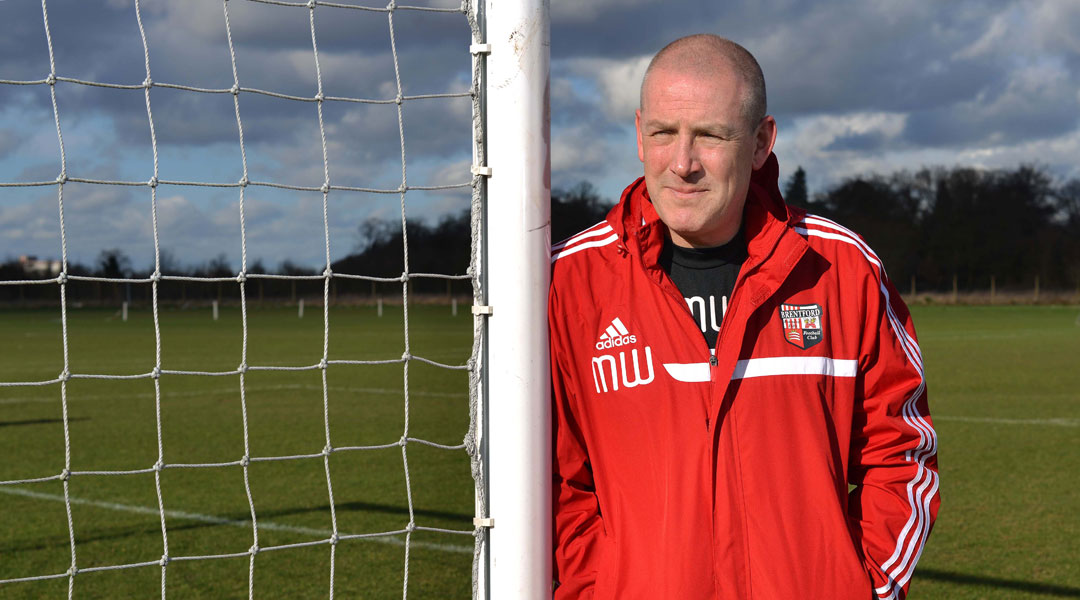
It’s hard to question him. But how did all this actually happen? What do the players and fans think? And could Warburton’s pioneering ideas – more of which later – actually help save English football on a much larger level? FourFourTwo hit the road for a Brentford away day to check whether he’s the real deal.
“I stayed up all night looking at player profiles”
Warburton’s path to management has been intriguing. Like many boys, he grew up wanting to be a footballer, and – as an athletic right-back – he came close, getting snapped up by Leicester City as an apprentice.
But he didn’t have what it took. “I was an average player and I didn’t get along with my manager, Jock Wallace,” he says. Instead, he settled for signing at semi-pro level with Enfield. “It was fun, but I ruptured my cruciate ligament twice. I got more drawn into my work life.”
The City was fiercely competitive. “You’ve got teams of eight or 10 guys, aged 18 to 40. It’s similar to being in a football squad and it’s big pressure. You may not see eye to eye, but you have to bite your tongue and work together. You could do 10 months and smash your targets, and then on the 11th month lose everything. It taught me calculated risk.
"I met some good people and learned a lot. I worked in Carolina, Chicago, Asia. I’d buy and sell sterling, yen and dollars all day, so football was a real outlet. Wherever I went, I coached. School teams, university teams, whatever.”
It was through his son, however, that an actual career in sport materialised, as Warburton’s City-honed gift of the gab impressed some real football people. “My boy was at the Watford academy and I used to talk to the coaches. Eventually they asked me if I’d I help out part-time.”
Warburton eventually took a 90% salary cut to accept a staff position there. “It’s hard to give up that pay packet – you can find yourself caught in a bit of a trap. But I put some money aside and gave myself the 10-year deadline.” By 2006, he was director of the Hornets’ academy. “I learned so much from Aidy Boothroyd, Malky McKay, Sean Dyche, Brendan Rodgers, Dick Bate. Every day was an A-licence.”
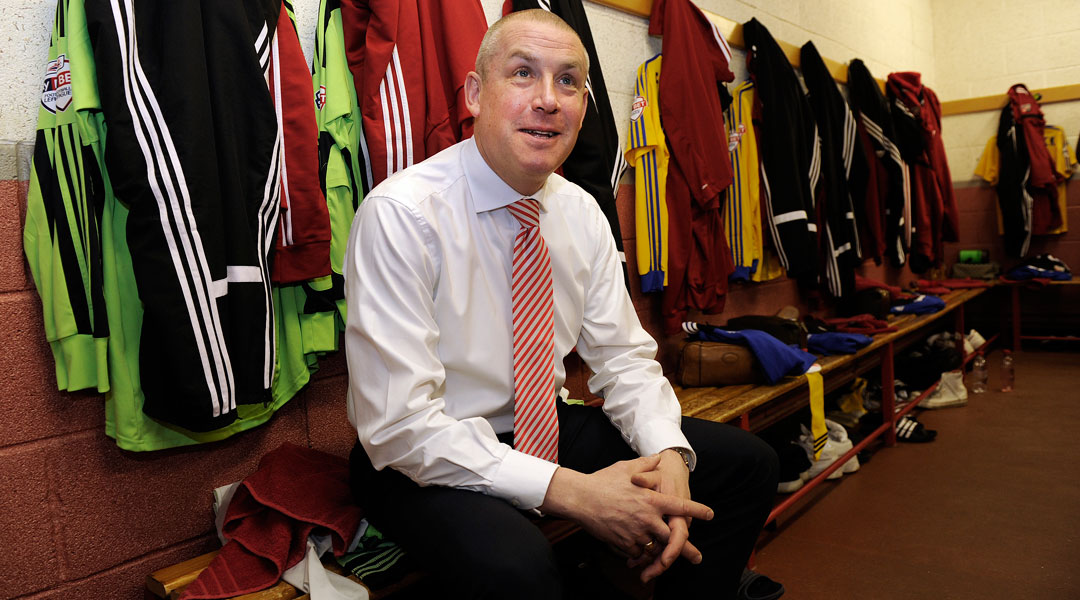
Warburton also visited Sporting Lisbon, Ajax, Valencia, Inter Milan and Barcelona to absorb coaching techniques. His canny business eye soon spotted a gap in the market, too. “I saw a void in the education of players between youth football and first teams.
Everyone complained about it. I thought: how can it be, in 2010, that players emerge from brilliant academies and then suddenly aren’t being challenged unless they make a first team?” As a result Warburton came up with NextGen, the 24-team pan-European U19 tournament. “Every club we asked leapt at the idea,” he says.
I saw a void in the education of players between youth football and first teams"
He had also befriended Matthew Benham, and at 1.30am on a February 2011 morning, the Brentford owner called him to see if he’d assist caretaker manager Nicky Forster. “I didn’t know a lot about the players, so I stayed up the rest of the night looking at profiles,” he says. This spell as Forster’s coach was semi-successful: the Bees reached the Johnstone's Paint Trophy final, but flopped at Wembley against Carlisle. That summer, Rosler was appointed as boss.
Warburton was “annoyed” not to get the gig, but worked as sporting director alongside the German.
And following an incredibly dramatic couple of seasons during which time Warburton scouted, dealt with club finances and oversaw the Bees being awarded a Category Two Academy status, Rosler was tempted away to Wigan; he tried to take Warburton with him, but after speaking to owner Benham, the north Londoner's mind was made up. The 51-year-old was to become Brentford boss.
“I cried my eyes out”
It is a horrid Saturday afternoon in Cheshire in the middle of February’s record-breaking flood misery; on the Thursday, Crewe station had been evacuated after part of its roof was worked loose by strong winds. Five hundred or so Brentford fans have struggled north, and it’s fair to say they are a genuine hardcore.
The Bees, formed 1889, saw their best days in the 1930s, when the side twice finished in the top six. Since then, they’ve resided almost exclusively in the Football League’s bottom two tiers. After a 45-year hiatus, they were promoted to Division Two in 1992, only to be relegated again the following term. Their track record since has consisted primarily of heartache.
“It’s the wrong team for glory supporters,” says Lol Farley, originally from Chiswick. “We’ve had some shocking away days – getting home at 3am after watching us be lucky to score nil.”
“I keep waiting for it to go wrong,” adds his mate, Dean Hackman (“not Gene Hackman”). “When Rosler left, I was ready for us to fall to pieces. Our play-off record is shocking, and I’ve seen us lose five different finals. Last year was the worst. I don’t want to go through that again.”
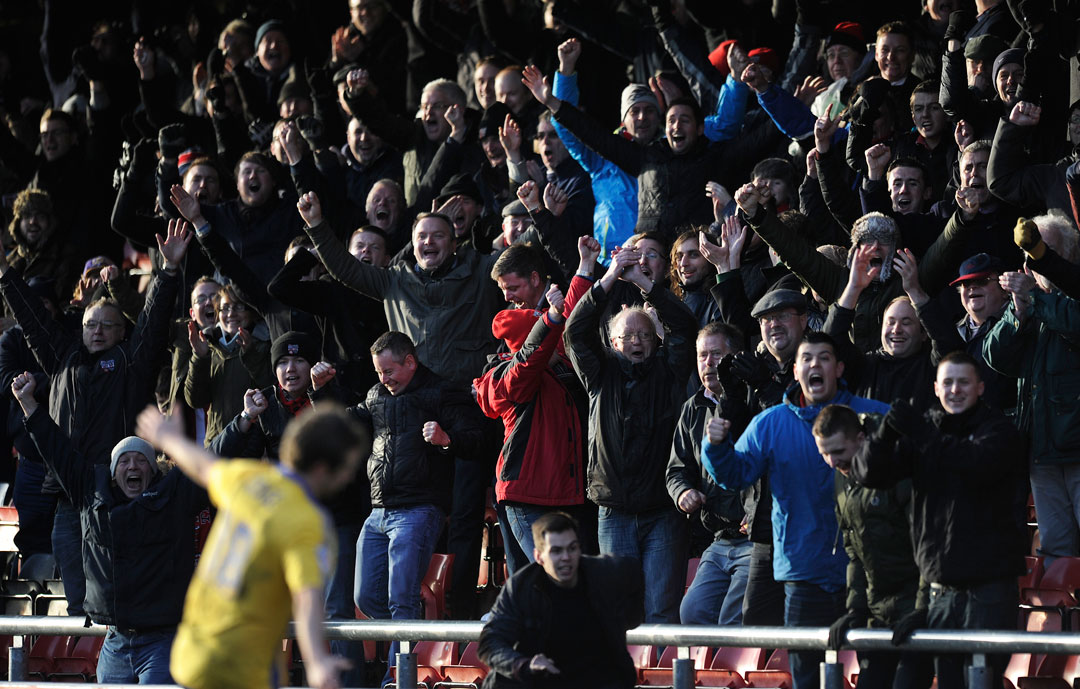
The conclusion to 2012/13 was cruel by any measure. In 20 of the most astonishing seconds of Football League history, fans at Griffin Park saw the Bees concede promotion to visitors Doncaster.
In the last minute of the season’s final fixture, Marcello Trotta took a penalty that would have seen Brentford leapfrog Donny and win the title. He hit the bar, Rovers launched a counter-attack, immediately scored and won the league themselves. Shell-shocked Bees slumped to the turf.
“We were up, then it was all gone,” says Les, another lifelong fan, outside The Corner Bar close to the Alexandra Stadium. “I cried my eyes out. We got to the play-off final, but we were so deflated by the Doncaster experience that there was only one team in it at Wembley. Yeovil deserved to beat us.”
My son doesn’t enjoy going to Brentford, but he isn’t allowed to go anywhere else"
No wonder pessimism is hardwired into these souls. “We’re competing against the likes of Chelsea, Fulham and QPR in west London,” says Lol, “so our fans tend to be born in to it. My son doesn’t enjoy going to Brentford, but he isn’t allowed to go anywhere else.”
But even these gloom-mongers can’t help but see the near-future as rosy. “We have a really good owner,” admits Dean.
“We’re paying proper transfer fees, building facilities – that hasn’t happened for years. We’re well-run from top to bottom now.”
Warburton is popular. “He seems sharp,” says Lol. “He probably has a different approach because of his background, and why not? Jose Mourinho was never much of a player, was he? If a business is running nicely, hitting its targets, you promote from within. It was smart.”
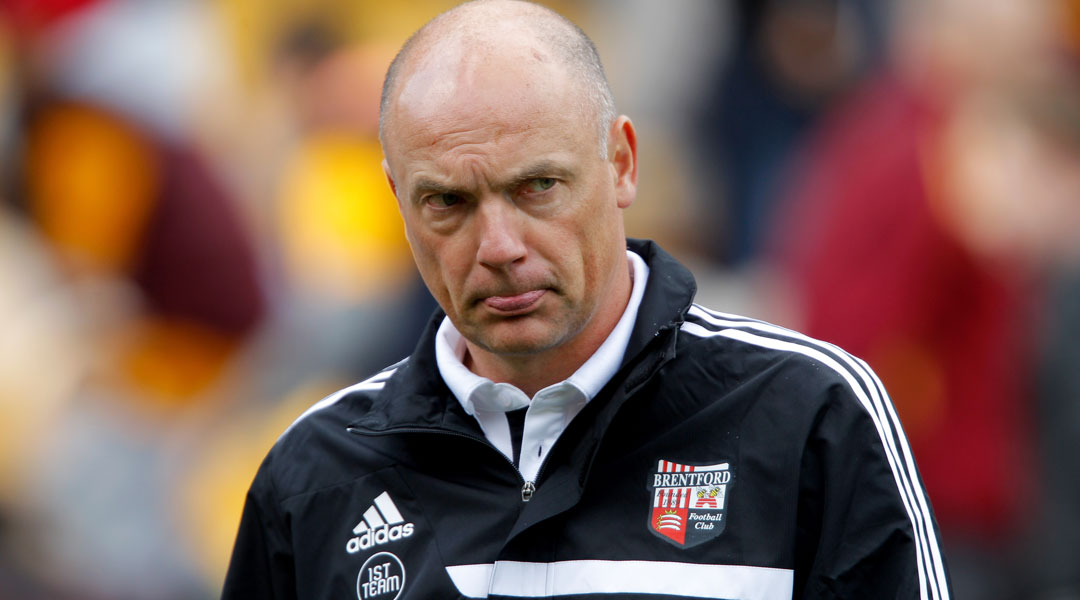
“Rosler wasn’t universally loved at Brentford,” adds Dean. “He was often quite negative. If you were a goal up, everyone would be behind the ball. Warburton would rather win 2-0 than 1-0.”
Brentford’s long-term health, however, clearly hinges on their move to a new 20,000 all-seater stadium on Lionel Road. “Going to Griffin Park feels like proper football, but we can’t progress without replacing it," says Dean. "Parking is a nightmare, and at half-time the queues for a beer are crazy.” For now, however, these Bees are joyful to merely be on an unbeaten run. Could it carry on in Crewe?
“Matthias Pogba, he’s scared of a dog”
Warburton welcomes FourFourTwo into Brentford’s dressing room pre-game. Dapper in suit and tie, he introduces his backroom staff. The city taught Warburton to have the best people possible around him, and in David Weir and Frank McParland, he has a couple of wily old heads to help put his ideas into practice.
They’ll be looking to go at Crewe today. “I get bemused when coaches talk about playing in a certain way when they haven’t got the squad to do it,” he says. “There aren’t enough Iniestas out there. You need to assess your personnel and see what fits. But ours enjoy attacking, so I give them that freedom.”
There aren’t enough Iniestas out there. You need to assess your personnel and see what fits"
The boss has pinned up some motivational quotes: negative statements about Brentford cribbed from rival teams’ forums. “I’m not a shouter,” he says. “I haven’t really had anything to shout at them for yet. We are on target. Two points a game from now on would give us 97 points.”
Outside, Crewe’s pitch is a bog. A tiny mascot is interviewed by the stadium MC. “You’re from London, why do you support Crewe?” he asks. “My granddad made me,” replies the tot.
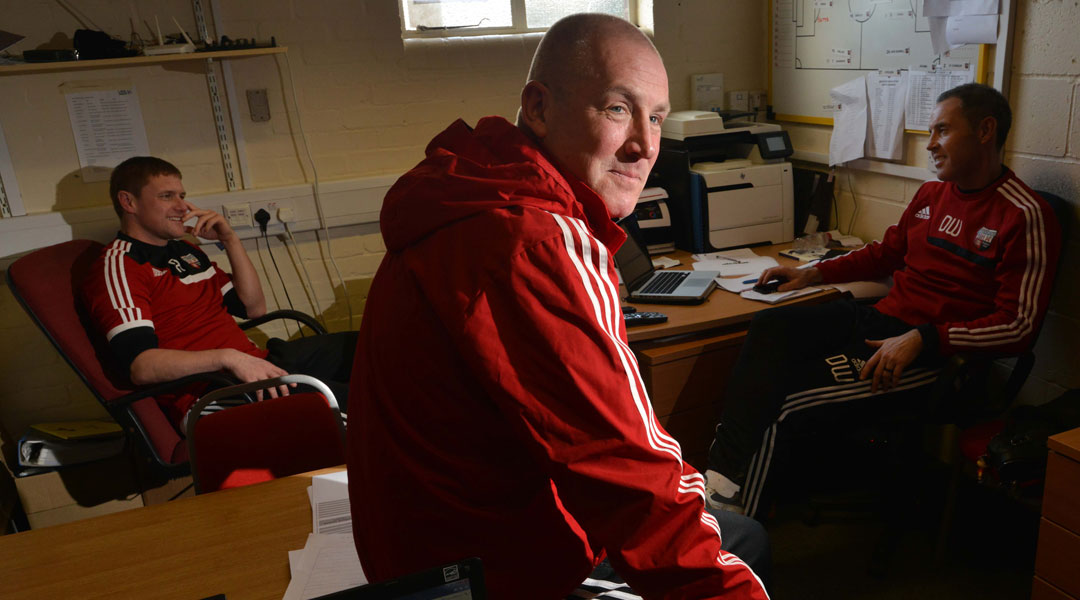
We join the travelling Londoners situated in the marvellously-named Whitby Morrison Ice Cream Van Stand. “Warburton’s barmy army”, they happily chorus. “We win every week” and “oh West London/ is wonderful/ it’s full of tits, fanny and Brentford.”
The teams run out – inappropriately to Coldplay’s Paradise – in a sodden gale. The first few minutes are bizarre. Just as play is about to start, a Siberian Husky in superb condition scampers across the pitch like something from a Winalot advert. Crewe’s hulking No.9 is genuinely startled.
“Matthias Pogba, he’s scared of a dog,” chant the Bees. Throughout the rest of the match they bark at him every time he touches the ball. Meanwhile, a mini-firm of Gazelle- and Burberry-toting Brentford lads enrage an older gent by refusing to sit down. The dispute escalated (“You’re just little boys, babies!”), and a genuinely vicious punch-up takes place. The police eject a number of participants.
But on the now Husky-free pitch, Brentford boss it. Their running, passing and movement is frankly sublime in patches; Crewe barely touch the ball. Winger Alan Judge scores two absolute crackers from 20 yards, only to be bested by Adam Forshaw, who arrows home an astonishing 30-yarder.
Crewe grab a penalty as a consolation, but there has only been one team in it, and Brentford win 3-1. “That’s why we’re going up,” holler the visitors, who then request that “Warbo” give them a wave. He obliges, and Crewe’s glum 4,182 fans file out.
Praise for Warburton is fulsome. Thirty-year-old midfielder Sam Saunders – often ignored by Rosler – has been a key part of Brentford’s wonderful run. “Mark likes attacking,” he says. “I love that, and thrive on being creative. Mark knows the players inside out. A few eyebrows were raised when he got the job but so far he looks like a great acquisition. He must think this management lark is easy.”
The fans concur. “Warburton has got us playing some of the best football I’ve ever seen,” reckons Les. “I don’t care about his background. He knows what he’s doing.”
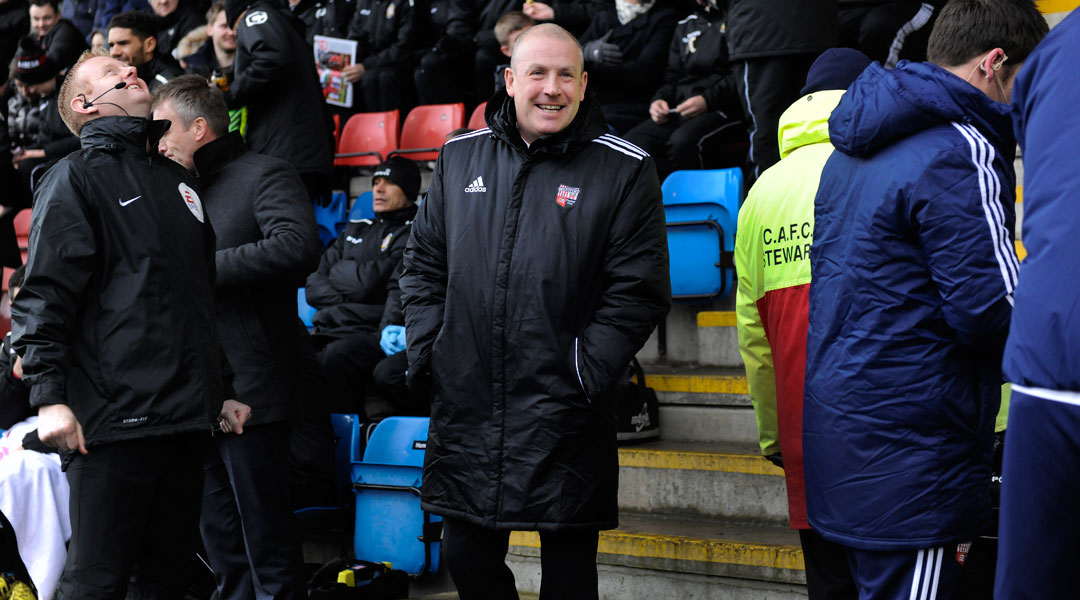
The boss himself is certainly ambitious. “We came so close last year, we want to reward the fans with a promotion,” he says. “But long-term, the new stadium is key to Brentford’s health. Our responsibility as the football department is to try to fill it. The chairman is not just looking for one season in the Championship. He’s building the club on structured foundations.”
There are too many clubs on the brink financially. It’s a house of cards: if one goes, a lot will"
As someone who has seen the insanity of the global financial crisis at close quarters, Warburton knows the importance of not overstretching. “Football is five years behind the City,” he reckons. “My worry is that the regulations that now exist in finance are missing here. There are too many clubs on the brink. I worry that it’s a house of cards and if one goes, a lot will go. Twenty years ago if you’d said that Lehmann Brothers will go bust, people would have mocked you. I worked at AIG, and suddenly their shares were worth nothing. We need to heed those warnings.”
He’d also like to help address the Three Lions’ problems through expanding schemes like the (now-defunct) NextGen. “If England is going to move forward we need to address the gap. Up to 18 we have some of the best academies in the world. After that we don’t challenge players between 17 and 21. I feel passionately about doing that.”
To get the chance to do it, though, he’ll need to keep doing one thing: winning. Bees supporter Lol recognises the fickle face of football fandom. “We’re getting used to good times now, but it can all change so quickly,” he says. “If we start losing, people will say: ‘Warburton isn’t a football man’.”
No pressure, Mark.
This feature originally appeared in the April 2014 issue of FourFourTwo. Subscribe!
Nick Moore is a freelance journalist based on the Isle of Skye, Scotland. He wrote his first FourFourTwo feature in 2001 about Gerard Houllier's cup-treble-winning Liverpool side, and has continued to ink his witty words for the mag ever since. Nick has produced FFT's 'Ask A Silly Question' interview for 16 years, once getting Peter Crouch to confess that he dreams about being a dwarf.

